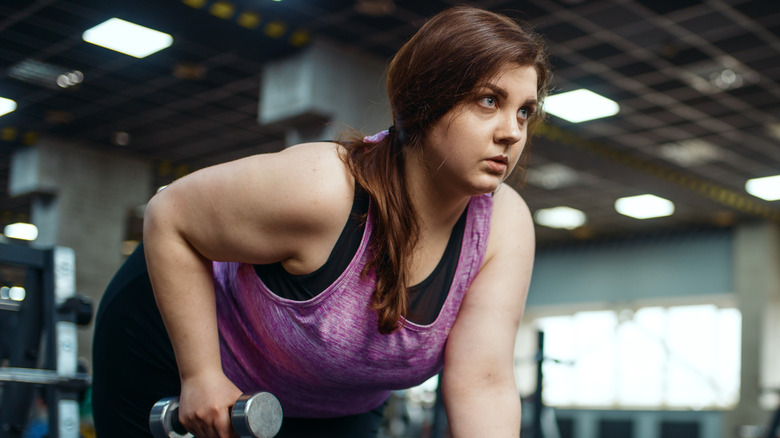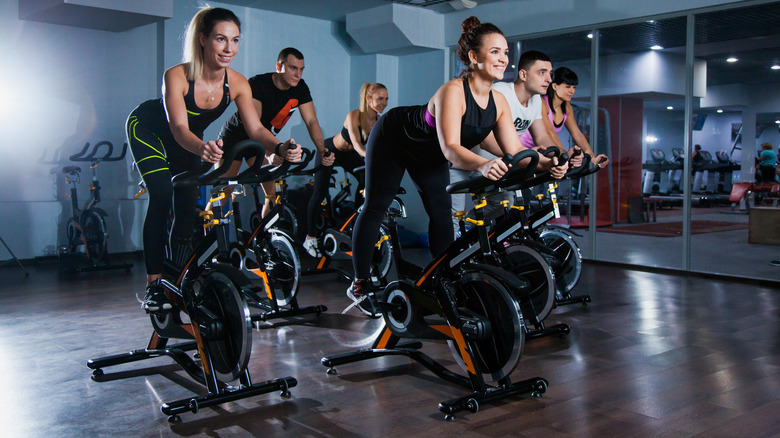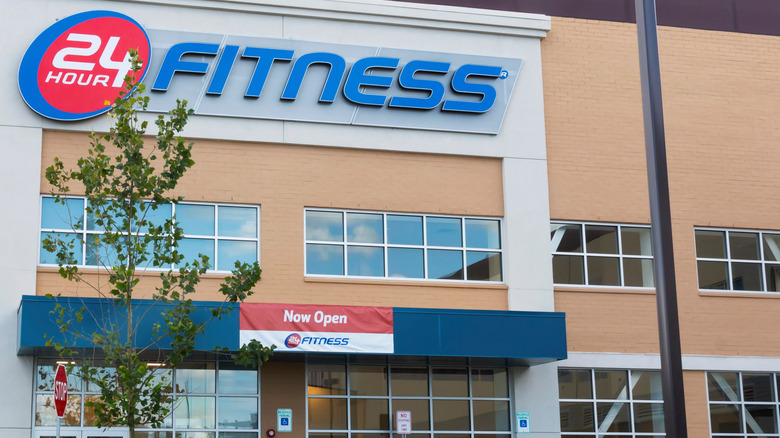How To Choose The Right Gym For Your Needs
Choosing a gym is often the first step to better health and fitness. While it's true that you can exercise at home, you may not have the time or motivation to stay on track. Plus, most gyms have personal trainers who will keep you accountable and build custom workouts based on your needs. The social aspect is important, too. Joining a gym would give you the chance to meet like-minded people, including fitness enthusiasts who share the same goals as you.
A gym membership also gives you access to the latest exercise equipment. At-home gym machines are often of lower quality than their professional counterparts and can lead to injury. On top of that, you might not know how to safely use them. The number of at-home exercise injuries that required emergency care increased by nearly 50% between 2019 and 2020, reports Medicare Advantage. More than 20% of injuries were associated with treadmill use. If you go to a fitness center, you can hire personal trainers or sign up for group exercise classes and receive guidance from professionals.
As Muscle and Fitness puts it, finding the right gym is similar to building a relationship. You need to reflect on your goals, plan things out, and do some vetting. For starters, consider the following aspects before getting a gym membership.
Define your must-haves
First things first, determine what you're trying to accomplish by joining a gym. Training for strength or muscle growth is different than training for fat loss. If, say, you want to build lean mass, then the Mayo Clinic suggests you should focus on lifting weights. In this case, it makes sense to choose a traditional gym rather than a boutique gym or one offering specialized services like yoga, spinning, or Pilates classes. Another option is to look for CrossFit gyms, which offer different types of exercise equipment.
Some fitness centers also offer physical therapy or massage services, nutrition coaching, snack bars, and other extras, notes Bodybuilding.com. The question is, do you really need these services? Sure, it would be nice to get a massage before leaving the gym, but you might have to pay extra for it.
Your best bet is to list your "must-haves" and then search for a fitness center that meets your needs. You'd be surprised how many places don't have the proper equipment for weight training, cardio, bodyweight exercises, and other basic activities! Consider your pre- and post-workout routine, too. For example, you might want to choose a gym that offers healthy snacks, smoothies, or protein shakes if you're too busy to prep your meals ahead.
Consider your fitness level
The experts at WebMD suggest choosing a gym based on your fitness level. If you're just getting started, look for traditional fitness centers that offer a little bit of everything. At this point, it's important to try out different activities and learn how to use the machines in a gym. Ideally, choose a place where you can learn the basics of strength training, cardio, plyometrics, and other types of exercise. Ask about their personal trainers, their qualifications, and their approach to health and fitness.
Bodybuilding.com recommends looking for personal trainers with advanced degrees or certifications. Anyone can obtain a basic certificate, but this says nothing about his experience and knowledge. Also, note that some gyms offer discounts on personal training packages. The more sessions you book, the lower the price. Others sell membership plans that include a set number of personal training sessions, which would allow you to test the waters.
If you're an intermediate or advanced trainee, you should already know what kind of activities you enjoy most. So, you can either join a traditional gym or a specialized fitness center, depending on your preferences. Crunch Fitness, for instance, offers all sorts of exercise equipment, plus specialized fitness classes and personal training services, notes Men's Health. Gold's Gym, on the other hand, appeals mostly to bodybuilders and powerlifters. Pure Barre and other specialty gyms offer niche services, such as ballet-style workouts, circuit workouts, aerial yoga, or Zumba classes.
Think about your budget and lifestyle
Last but not least, consider the gym's location, hours of operation, and membership cost. Look for a fitness center that's close to your home or workplace and has flexible hours that fit your schedule. Some gyms are open around the clock, while others close their doors early in the evening and during the weekend.
If possible, book a trial session at a local gym to see how crowded it is and how long you have to wait to use the equipment. Better yet, look for gyms that allow guests to try their services for free or at discounted rates before committing to a membership plan. For example, Anytime Fitness offers a seven-day free pass in most of its locations. Some fitness centers also offer discounts at the beginning of the school year or after the New Year, reports Bodybuilding.com.
As a rule of thumb, avoid long-term memberships, especially when joining a new gym. You might think that paying a large upfront fee will keep you motivated to stay fit, but it's not that simple. "The guilt of using your gym membership because you are paying for it will only take you so far," said personal trainer Janna Young in an interview with Healthline. "Thinking that making a one-time payment will change your thought processes is simply not practical," she added.



